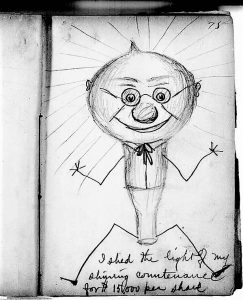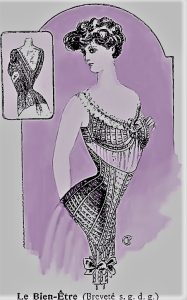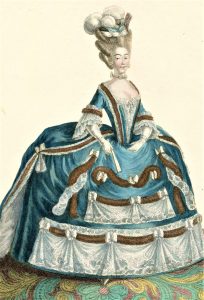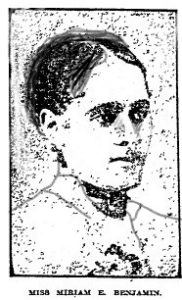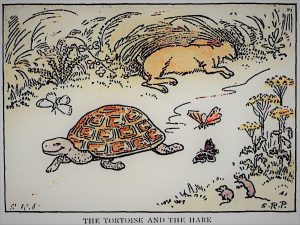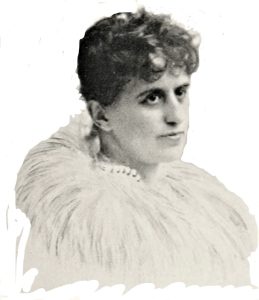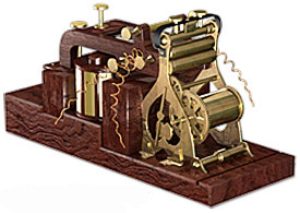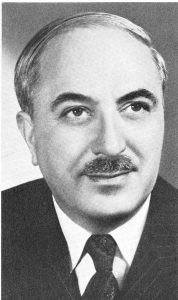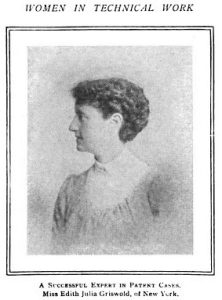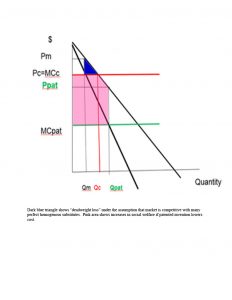Can we distinguish whether a creative work was by a human? Conversation with ChatGPT often exhibits rare insight, analytical and philosophical awareness; not to mention an almost British sense of humour. Research indicates that AI’s behaviour can be more altruistic and cooperative than that of the average human.
patents
Thomas Edison and the Bowdoin Inventors
Who invented the light bulb? Isaac Adams Jr., Bowdoin class of 1858, created an incandescent light bulb with a carbon filament 14 years before Thomas Edison. However, he failed to persevere and produce a scalable innovation that would benefit consumers in the market. Instead, two highly-educated mathematical scientists from the class of 1875, Francis Upton and Charles Clarke, provided invaluable systematic research at Edison’s lab in Menlo Park. As such, without the contributions of Bowdoin inventors, the discovery and diffusion of electrical lighting would have been significantly retarded.
Not Marie Curie: French Women Inventors
According to Voltaire, one might discover women who were accomplished in war or science, but it was quite impossible to find any women inventors. Over eight thousand inventions were patented by French women through 1901, ranging from the not unexpected corsets and coffee makers, to condensation machines, artillery and anatomical models.
Notable Women Inventors in Britain
Fans of the history of technology can quickly name a dozen significant British inventors, but very few would be able to identify any women with noteworthy discoveries. Women who could circumvent institutional barriers tended to come from rather privileged backgrounds, or to have social connections – patent rosters featured many aristocrats, including a cotillion of countesses, baronesses, and even a duchess or two. However, studies of female patentees demonstrate that individual initiative could be just as potent as wealth, patronage, and self-promotion in generating technological innovation and social change.
A Pioneering Black Woman Patent Attorney
Like millions of innovative individuals, MIRIAM E. BENJAMIN (1861-1947) was active in multiple inventive markets, as the patentee of two inventions, and assignee on another. However, an overlooked and unique contribution is that she was the first black woman who practiced as a patent attorney. Miriam E. Benjamin was born in South Carolina to a […]
Patent Waivers (or “Don’t know much about history…”)
I have two words to describe patent waivers: arbitrary, irrational and unconstitutional. This proposal displays a shocking ignorance of American history and basic economics. The most fundamental principle of a free market system is secure property rights. Someone who grows potatoes has property rights in them; why should patentees be treated worse than potato planters?
American patent policy is vested in the U.S. Constitution, and its most fundamental principle is that “A patent is property of the highest order.” The Founders intended that patent rights should be absolute, and they explicitly rejected compulsory licenses, working requirements, and any other constraints on inventive property.
Is Technology a Race? Patents and National Security
Metaphors matter. Is technology a race, or a war with an associated D-day? References to “the race to 5G” and “innovation wars” are based on a zero-sum model of technological innovation, where there are glorious outcomes for “winners” and dire consequences for “losers.” According to this ahistorical perspective, the leader takes all, and for the rest of the field, life promises to be poor, nasty, brutish, and short. In order to avoid this doomsday scenario, previously unthinkable measures become acceptable in the name of “national security.”
Notable Women Inventors of Maine
The surge of new inventions and innovations in nineteenth century America transformed the world to an extent that arguably remains unmatched today. Even among the New England states known for their “Yankee ingenuity,” Maine inventors surpassed their peers. Among the few female entries in the National Inventors Hall of Fame are Helen Blanchard and Margaret Knight, celebrated because of their successful industrial machines. But the typical woman inventor productively directed their attention to supposedly minor “feminine inventions” like dress charts and kitchen tools that improved the lives of other women and their families.
Looking Backward: From 5G to the Telegraph
The advent of 5G cellular technology has induced imaginative speculations about spectacular virtual universes, Humans 3.5 artificial intelligence, and an Internet of Things that will trigger “smart houses” and even smarter cities. What lessons can earlier telecommunications inventions offer? The focus here is on five issues regarding 5G: the social savings from new innovations; business to business (B2B) relative to consumer markets; private sector versus government-led initiatives; net neutrality; and the right to privacy.
U.S. Patents: A Play in 10 Million Acts
Patents represent an invaluable curated stock and flow of cultural knowledge, dating back to the founding of the Republic. Moreover, every one of the ten million patents filed in the USPTO generates a word cloud of information about a person or team and their individual creativity. According to Lawrence Langner, founder of Ladas & Parry, “our industrial supremacy is due largely to the striking differences which exist between our patent system and the patent systems of the rest of the world…America is the fountainhead of invention; exports the products of its brains in the form of foreign patents; and through its inventive products, is spreading democratic ideals throughout the world.”
Patent Priority: the First Woman Patent Lawyer
Who was the first American woman patent lawyer? Novelty and priority in time are central to patent law, and it is especially apt to consider the pioneers who expanded diversity in the field. For those who think they know the answer to this question, this post will be surprising. She was Edith Julia Griswold (1863-1926); […]
Women and Innovation in Developing Countries
Round table discussion of gender, patents, open source, and technology policy in India. Participants include Zorina Khan (the moderator) and leading Indian academics, patentees, entrepreneurs, and innovators.
Are Patents Monopolies?
Hostility to patents is associated with the notion that patents are monopolies that harm social welfare. Legal history and empirical evidence together demonstrate that this claim is based on a fundamental misunderstanding of the economics of monopoly, and of property rights in patented inventions.

